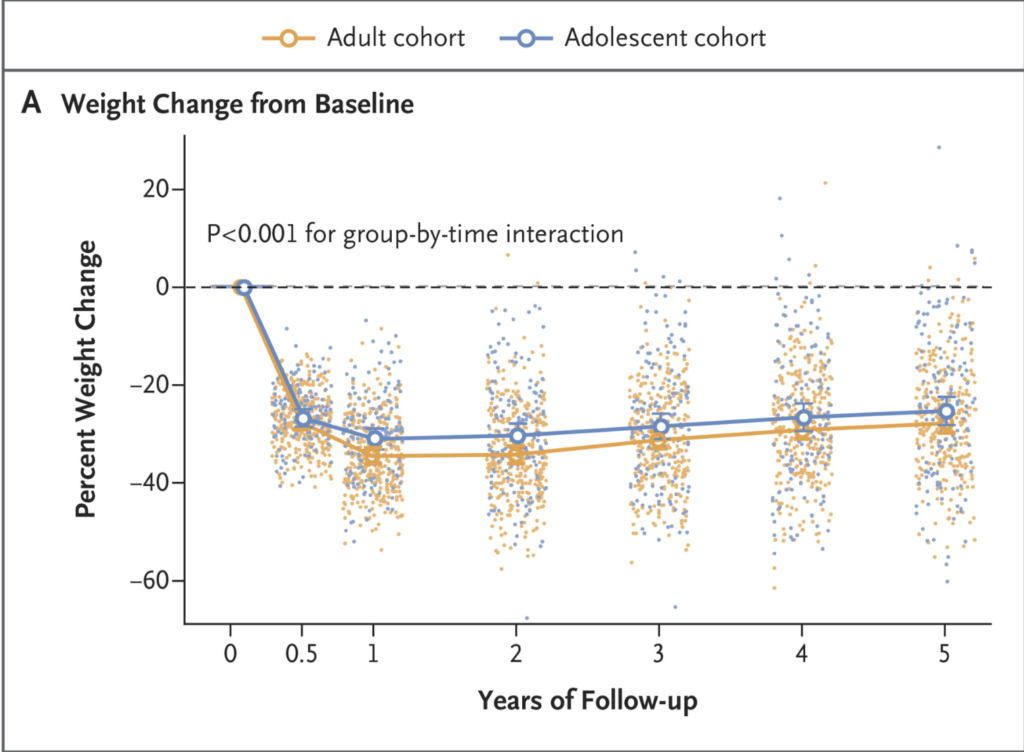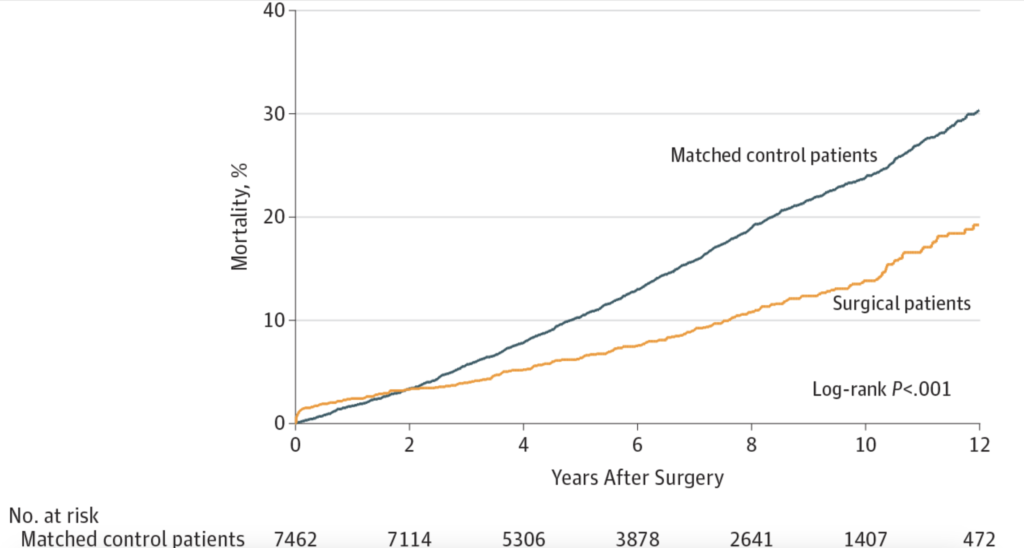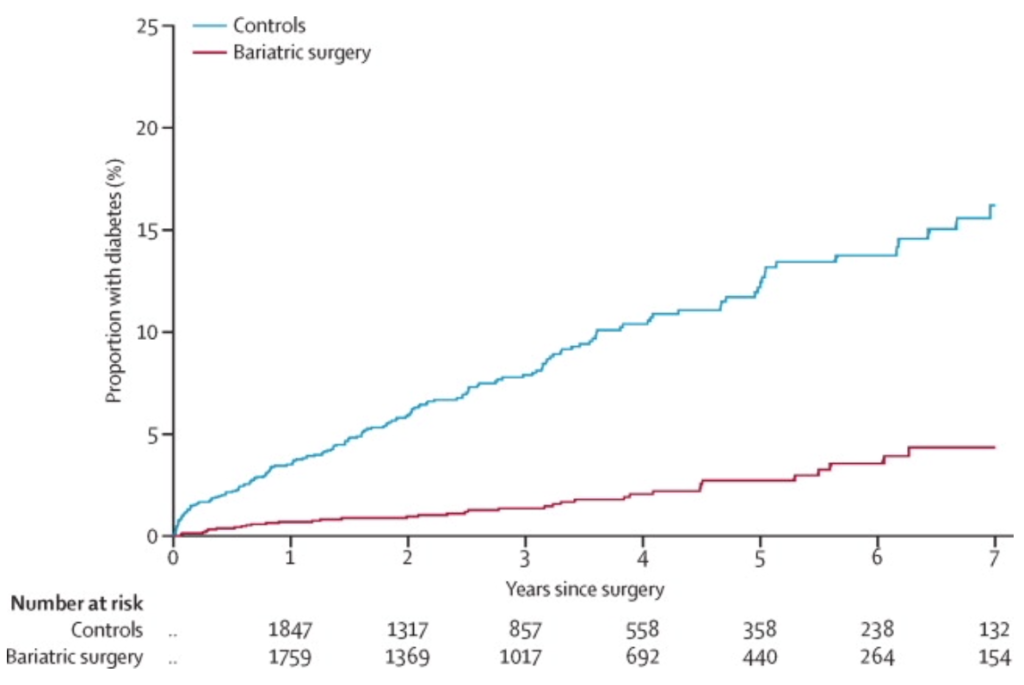Metabolic surgery, specifically gastric bypass, gained prominence forty years ago as an effective intervention for obesity, type 2 diabetes, and related metabolic disorders. Patients who undergo gastric bypass usually experience substantial weight loss, diabetes reversal, and improvements in various metabolic parameters. However, a critical question that arises is, “How long does gastric bypass last?” Today, I’m sharing a current analysis of the long-term outcomes of gastric bypass surgery as well as factors influencing its durability.
Long-Term Weight Loss
One of the primary objectives of gastric bypass surgery is long-term weight loss. Several studies have reported that patients typically lose a significant amount of weight in the first 12-24 months following surgery. The durability of this weight loss varies among individuals but remains strong many years later. To illustrate this, let’s examine a typical weight loss trajectory 20 years after gastric bypass surgery as reported in a New England Journal of Medicine study (Figure 1).

The initial rapid weight loss phase is followed by a slower, more gradual decline in excess body weight. Long-term studies have shown that, on average, patients can maintain a substantial portion of their weight loss for 20 years or more. More important to many people is the durable health benefit, with numerous long-term studies showing substantial improvements in health and longevity. In short, gastric bypass reduces one’s chance of dying for many years to come (Figure 2).

Factors Influencing Durability
While many individuals maintain significant weight loss for an extended period after gastric bypass surgery, the durability of the results is influenced by various factors. Some of the key determinants include:
- Compliance with dietary guidelines. Adherence to post-operative dietary recommendations and lifestyle changes significantly impacts the long-term success of gastric bypass surgery.
- Physical activity. Regular physical activity and exercise help in maintaining weight loss and improving metabolic health.
- Follow-up and support. Frequent follow-up appointments with healthcare providers and support from healthcare teams can enhance the durability of surgery outcomes.
- Individual variability. Patient-specific factors, such as genetics, metabolic rate, and pre-surgery health, can influence long-term results.
Metabolic Benefits
Gastric bypass surgery not only leads to weight loss but also provides substantial metabolic benefits. It usually improves or resolves obesity-related comorbidities such as type 2 diabetes, hypertension, and sleep apnea. To better understand the long-term metabolic effects, we can examine the resolution or improvement rates of these conditions over time.

The data in Figure 3 shows that the metabolic benefits of gastric bypass surgery can last for many years and often lead to long-term remission of conditions like diabetes.
The Takeaway
Gastric bypass surgery has proven to be an effective and durable treatment for obesity and related metabolic disorders. Long-term studies demonstrate that most patients achieve substantial weight loss and experience metabolic improvements for an extended period, with health and survival benefits often lasting decades. However, the longevity of gastric bypass surgery is subject to individual factors, adherence to dietary and lifestyle recommendations, and the level of medical support received.
Patients considering gastric bypass surgery should understand that while it is not a panacea, it is the most proven, effective, durable, and powerful tool for achieving and maintaining weight loss and improved metabolic health. The decision to undergo the surgery should be based on a thorough evaluation of individual factors and realistic expectations of the outcomes. With proper care and adherence to post-operative guidelines, gastric bypass, along with sleeve gastrectomy and duodenal switch which offer similar results, can provide long-lasting benefits, and significantly improve the quality of life for those struggling with obesity and its associated conditions.
Ready to learn more? Contact the team at Nevada Surgical today!




